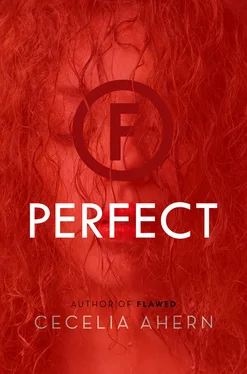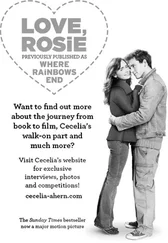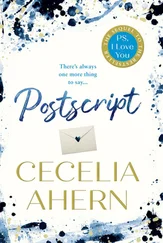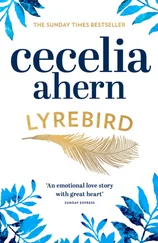We’re each handed a pair of flip-flops, the soles so thin I can still feel the cold of the clay tiles through them once I put them on. The lead Whistleblower patrols the line, inspecting us. She stops at me, looks me up and down, with a face like she’s smelling raw sewage.
“You. Celestine North. You like to play at being a leader, don’t you?”
I don’t answer.
“Well, now’s your time to shine,” she says nastily. “Front of the line.”
I walk through the single files, all eyes on me.
“Go on, Celestine,” one woman says.
Another person claps, like they’re gearing me up for something, like I’m about to walk into a boxing ring. I feel pats on my shoulder, on my back, receive encouraging winks and nervous smiles. The entire room starts to support me, and I feel the tears come to my eyes, tears of appreciation and pride to be so propped up.
The Whistleblowers blow their whistles to stop the rising support, which the lead Whistleblower hadn’t counted on. I take my place in the front of my single file. We will be the first line to move, and I will be the first in line, though I don’t know where we’re going.
The warehouse door slides open and light fills the space, and we’re told to walk.
FIFTY-EIGHT
AT EXACTLY THE same time as we exit, the men exit their quarters beside us. They wear red tank tops and boxer shorts. From the look of some fresh bleeding noses and shiners it’s clear their uprising was lost, too. Some women start to cry as they see the men. Some men start to cry, and others look away out of respect, when they see us.
The man who leads the Flawed line looks at me and curses when he sees what we have to wear. The male lead Whistleblower immediately clatters him across the head, which silences him. We meet in the middle and are ordered to walk alongside each other. I lead the women; he leads the men. I wonder what he’s done to be picked to go first; I’m sure men weren’t fighting over their boxer shorts. I scan the men’s line to see if I can find any familiar faces, but a whistle is blown loudly in my face, signaling that I must keep my head straight.
“You’re Celestine North?” the man beside me asks, lips not moving.
“Yes.”
“What’s going on here?”
I look around. “I don’t know.”
“Well, I hope you have a plan of some sort,” he says.
We step onto the docklands and the streets are lined with people, members of the public who have come out from their houses and workplaces to see the Flawed parade through the streets. The walk of shame. The walk of blame. Dotted along the sidewalks are Whistleblowers dressed in their riot gear, shields in their hands.
We are in the old part of the town. On the other side of the river is the urban, vibrant, modern city, which rises from the once-derelict docklands. On this side, the old cobblestoned roads have been maintained, home to the market traders, wholesale and retail, from fruit and vegetables to meat and fish—a thriving, busy, colorful world filled with people and life. And so this is where we begin our journey, from the warehouses, past the stallholders in the market, and I feel it’s fitting. I feel like cattle about to be traded, sold, gawked at, and valued.
Then the laneways widen and bring us by cafés and restaurants, stories of apartments above, people out on their balconies, watching us with steaming cups in their hands. The cobblestones are difficult to walk over in our flimsy flip-flops, and more than once I stub my toe on the sharp edges of the pitched paving and am not alone in stumbling. A few people fall to the ground, cutting their knees, and are helped up by their fellow Flawed.
Through the city speakers we hear Crevan’s voice, a recorded version of what he said earlier. Snippets of phrases that have been cut, edited, now replay over and over again.
“Today is the day we say thank you to the Flawed population for helping us cleanse our society of imperfection and for allowing us to have an organized, decent society.” This one statement is popular and plays over and over like a broken record.
Big, small, skinny, fat, black, white, old, and young, there is nothing left to the imagination, as we’re paraded through narrow cobblestoned streets in front of the audience. There are some wolf whistles from childish groups of teenage boys, but mostly the looks are of horror and embarrassment that this is happening. It is one thing to know that Flawed are branded and must live as second-class citizens, it is another to have to watch them parade the scars of these punishments. Out of sight, out of mind. It is easy for people to live their lives when they are not faced with the reality in such a harsh way as this.
This parade was designed to be cruel, to put fear into people’s hearts; the public is supposed to be horrified. It is a message being sent out to the country: Don’t believe in the country’s ideals and this will happen to you. But nobody can do anything about it; speaking out would be to aid a Flawed, and they would end up walking alongside us, so everyone keeps their mouths shut, the fear of joining us too great.
Despite all the eyes on my near-naked body, I feel invisible. Nobody can truly see me. It feels the more they have lumped us together, the less human we have become, no longer individuals. I walk, the tears spilling from my eyes, down my cheeks. Head straight, focused on the path before me. Our tears are pointless and worthless—they can do no good. No one but ourselves can wipe them.
My eyes meet with those of the other Flawed men and women. What can we do? Have we stopped even seeing one another? They look as powerless as me, as though they’ve given up, some heads down so low, they’re tripping up when the person in front slows, some with their heads so high they’re defiant. Others crying. Others showing nothing, unreadable. Living the moment until it’s over. Putting up with it.
I look out for Carrick but know he would be crazy to risk coming here. I wonder if he’s watching this on television, and that makes me smile. I hope so. I picture him on a couch, in a safe house, free.
“Leonard!” Lizzie suddenly screams from behind me.
Leonard is at the side of the road, among the crowd.
He reaches his arms out to her and they embrace before the nearest Whistleblower manages to pull them apart.
“Let him hug her!” I hear one woman shout out and the crowd in that section begin to all call out against the Whistleblowers.
“Flawed scum!” someone else shouts at us.
I keep walking.
I turn around to see how long the line is and I catch a glimpse of Mona, way in the back. I gasp. Cordelia is behind her. There’s no sign of Evelyn, and I hope that she is safe with Alpha and Professor Lambert and not in one of the F.A.B. institutions, though I fear the worst. I suddenly see Carrick’s mother, Kelly, and across from her I see Professor Bill Lambert. My heart breaks; they’ve all been caught. I fear for Juniper and my mom, and Carrick. I feel weak.
We emerge from the cobblestoned roads and enter the old town square, surrounded by colorful ornate buildings built in the eighteenth century. What these buildings have seen in their lifetimes, and now this cruelty.
“We must be going to the castle,” I say to the man beside me, my heart pounding. The castle holds nothing but terrifying memories for me, but I think of Granddad. At least there is a part of me that wants to go there, perhaps I’ll be reunited with him. Then I wonder if Granddad is among the men and I turn around and study them again. I’m looking behind me too much and I fall to the ground and cut my knee.
A man stops to help but a whistle blows for him to continue. He apologizes and keeps walking. A woman along the side of the square gasps and reaches out her hand to help me. A Whistleblower glares at her and she backs away.
Читать дальше
Конец ознакомительного отрывка
Купить книгу












